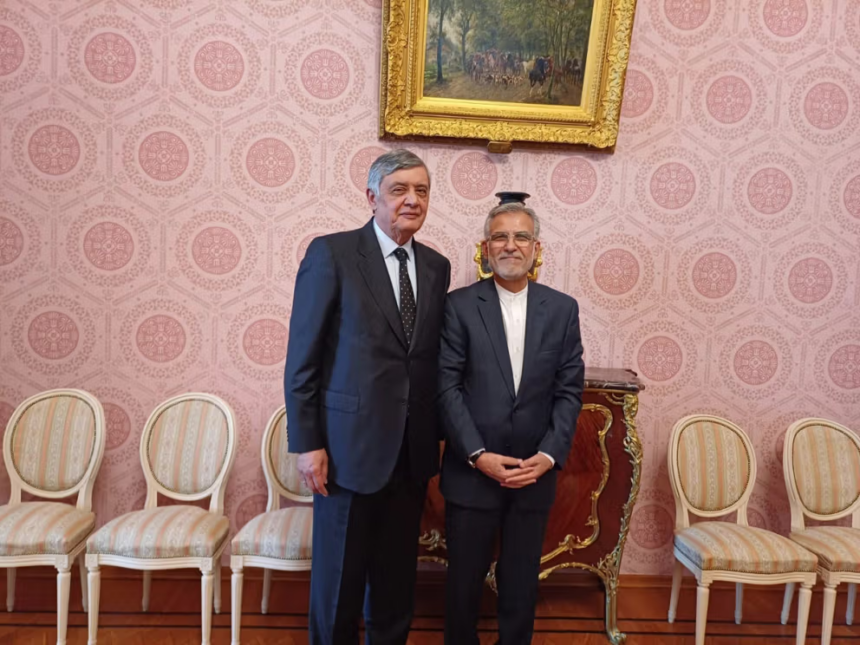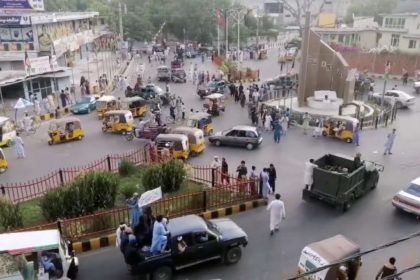RASC News Agency: Amid deepening geopolitical uncertainty and mounting regional security concerns, Zamir Kabulov, Russia’s Special Envoy for Afghanistan, met on Wednesday with Mohammad Reza Bahrami, Director-General for South Asia at Iran’s Ministry of Foreign Affairs. The two officials engaged in an extensive exchange on the evolving situation in Afghanistan, emphasizing the urgency of confronting shared challenges stemming from the country’s prolonged instability under Taliban rule.vAccording to the Russian Foreign Ministry, the dialogue focused on identifying viable strategies to address the entrenched political, economic, and security crises gripping Afghanistan. Both sides underscored the importance of regional cooperation frameworks, particularly the Quadrilateral Consultative Mechanism involving Russia, China, Iran, and Pakistan an initiative increasingly viewed as an emerging axis of influence in the absence of coherent international leadership on Afghanistan.
During the meeting, Kabulov reiterated Moscow’s longstanding criticism of Western efforts to impose external political models on Afghanistan, characterizing such interventions as counterproductive and disconnected from Afghan realities. His remarks, which were met with agreement from the Iranian delegation, reflected a shared belief that top-down foreign approaches have repeatedly failed, particularly when imposed in the absence of inclusive, accountable governance. Bahrami, in a statement on his official X (formerly Twitter) account, described the conversation as “constructive and productive,” noting that the primary focus remained the deteriorating internal situation in Afghanistan a country now governed by a regime that has consistently rejected pluralism, gender equality, and basic human rights.
Over recent months, both Iran and Russia have intensified their diplomatic engagement with the Taliban, despite the group’s continued repression of women, minorities, journalists, and civil society. In a striking development, Russia recently removed the Taliban from its official list of banned terrorist organizations and formally received a Taliban delegation in Moscow. Simultaneously, Russian Foreign Minister Sergey Lavrov has warned against the re-entry of Western military forces into Afghanistan, framing such a scenario as a potential trigger for renewed regional conflict. Iran, meanwhile, has cultivated a strategically significant relationship with the Kandahar-based Taliban leadership, led by the ultra-conservative and reclusive figure Haibatullah Akhundzada. Tehran has emerged as one of the Taliban’s primary economic lifelines support that comes despite the regime’s unrelenting campaign of authoritarianism and ideological puritanism, which has crippled Afghanistan’s institutions and marginalized entire segments of the population.
Nevertheless, both Moscow and Tehran have expressed growing alarm over the rise of ISIS-K (Islamic State Khorasan Province), an extremist offshoot that has thrived in the Taliban’s security vacuum. The group has claimed responsibility for numerous mass-casualty attacks in both Iran and Russia brutal reminders that the Taliban’s promises of restoring stability ring hollow. Far from eliminating transnational terrorism, the Taliban have presided over an environment in which extremist factions continue to proliferate, posing a severe threat not only to Afghanistani citizens but to regional powers as well. Analysts warn that while Russia and Iran’s engagement with the Taliban may be driven by geopolitical pragmatism, their outreach risks normalizing and legitimizing a regime that operates with no regard for international norms, basic freedoms, or minority rights. Under Taliban rule, Afghanistan has become a space of systemic repression and socio-economic collapse, where women are banned from education, ethnic communities are sidelined, and independent media have been silenced.
The very actors now seeking to shape Afghanistan’s future are doing so in dialogue with a regime that rejects the foundational values of diplomacy, consensus, and human dignity. As ISIS-K expands its operations and the Taliban remain ideologically inflexible and institutionally incompetent, the region faces a dangerous future one defined not by reconstruction, but by radicalization, repression, and deepening humanitarian catastrophe.






